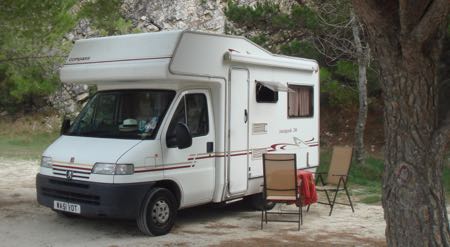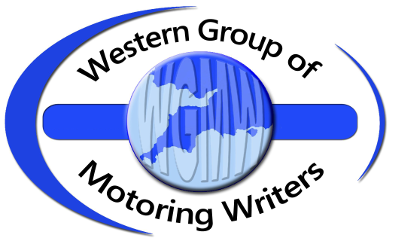ROLLING off Brittany Ferries’ Armorique after an overnight crossing from Plymouth to Roscoff has in the past for us been the start of a long distance marathon to the far south along France’s pretty expensive motorway system.
Once you leave the familiar Brittany landscape, so Cornish in its own way where dual carriageway travel to motorway standards is free, you come across the peage or toll-charge motorways. If you happen to be travelling in a motorhome, the toll charges are even higher, so beware.
But this time modern technology came to our aid in the form of satnav and having got a device on board I decided to break with long standing family tradition and head to Avignon, and later Le Lavandou on the Mediterranean coast, using mostly France’s wonderful D-road system picked out for us by the navigation system.
It proved an inspired decision and we journeyed via the Loire and the Auvergne to the mouth of the Rhone in easy-going comfort and, except for petrol of course, free of charge.
One diversion proved just how expensive French motorways have become. We decided not to miss the spectacular bridge over the River Tarn at Millau and for once took the motorway for a few miles to achieve our aim but the short journey across the Viaduc de Millau cost a whopping €10, about £9. Still, as the architect of this modern masterpiece is the Brit Norman Foster, it’s worth every penny.

Mostly, French D-roads are long and straight, presumably following old Roman ways, and amazingly light on traffic and easily overtaken even in a less than lively motorhome.
But you can be taken by surprise when you rely on satnav and follow the no motorway option. The road from Montpellier northwards to Millau, for instance, rises like a mountain pass with breathtakingly steep swoops and curves to well over 3,000ft and the Corniche de Cevennes, or the Ardeche gorges, where roads cling like goat tracks to the mountains, can await you.
For a motorhome powered by a non-turbocharged diesel engine, it’s a true test indeed. That the 1.9-litre engine in the Compass Avantgarde I was piloting coped so well is a tribute to Peugeot, the makers of the Boxer chassis on which the camper is created. It’s no spring chicken at more than six years old but in true motorhome fashion the mileage at 31,000 is still remarkably low and effectively makes it a young vehicle at heart.

But it does like to keep at around 3,000 revs max which equates to 60mph and will return as much as 28mpg. Push it along a bit and that sort of fuel economy can evaporate at alarming speed.
The Compass Avantgarde we drove has all-mod cons for the driver including power steering and even a CD player and radio in the cab which, incidentally, is piped through to the living area at the rear should you wish.
It has a cassette-style flush toilet, hot water heater supplying shower, shower-room sink and kitchen sink, a full-size fridge, three-burner cooker and grille, electric lighting and a grand-size double bed.
All the electric items will also run off the gas supply on board the vehicle,that includes the fridge, although you can hook up to the mains electric supply on most campsites for a modest fee.
Don’t just take my word for the delights of a motorhome. You can’t have failed to notice the boom in the number of these vehicles over recent years.
There has been a decade of growth in motorhome sales with thousands of new vehicles registered each year and when you consider we are talking about vehicles mostly in the £30,000-plus price bracket that is some record.
If you think England is full of motorhomes a trip to France, will be an eye-opener. The French have always been great campers and the motorhome is particularly welcomed in that country.
Wherever you go there are “motorhome aires”, run by the local municipality, where you can stay for an average of around €8 a night, complete with electric hook up, once you have purchased the necessary access card from the tourist office.
Campsites with a wide range of facilities are common but charge more, as much as €40 euros or so a night at busy coastal locations, although inland, and outside the busy July and August holiday period, €14-20, or less, is nearer the mark.
The high exchange rate for Euros is a drawback and fuel is more expensive in France than ever although cheaper than in the UK with a litre of diesel on the motorway at around the €1.48 mark although it is best to buy it at hypermarkets where it is as low as €1.28.
© John Powell

